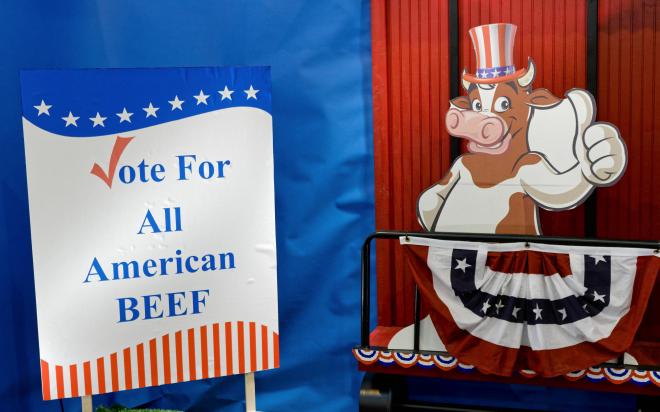Presidential choices

The US Presidential race is basically a big popularity contest. People generally pick a candidate based on personality and how much they like the person, rather than on policy issues. The best way to predict who will win an election is to ask “Which of these people would I rather have a beer with?”
Recently I’ve been trying to work out why it’s this way.
I’m not asking why people make emotional decisions; I learned in my 20s that when it came to interpersonal relationships and evaluating people, my intuitive emotional responses were much more accurate than my intellectual analysis. No, I’m trying to understand why this decision, the one of who to vote for, ends up being made that way.
Part of the problem is that I generally don’t get an emotional reaction to political candidates. Trump was an exception, and it still surprises me that so many people didn’t immediately sense that he was a bully and a con artist. But I see Bernie supporters and Elizabeth Warren supporters engaging in long, drawn-out battles, and I just don’t get it. I can’t conceive of identifying with either of them that closely.
I did feel like I could relate to Barack Obama. That was a new experience, never having felt like I could relate to any President or Prime Minister in my life. I didn’t get any kind of emotional read regarding whether he was a good person, but I felt like I could have interacted with him socially and not felt awkward. And then he was a big disappointment on policy anyway.
So whatever it is that gives me an instinctive reaction to people, it doesn’t generally transmit via video signal. Other people apparently feel strongly about multiple candidates. What are they seeing that I’m missing? Can they explain? And in a world where there is so much factual information about policy, why do people choose to decide who to vote for emotionally anyway? Wouldn’t it be better to pick someone who you really dislike but who will apparently promote the policies you want?
It has occurred to me that this whole thing could be related to my lack of brand loyalty. I’ve read that advertising branding is all about getting people to have an emotional relationship with the brand, to identify with it as part of their identity, and I don’t get that either. I mean, I have a pretty intimate relationship with Apple products, and have since the days of the original Macintosh. But I don’t feel loyalty to Apple, certainly not to an extent which will override factual (policy) concerns. I didn’t buy an Apple watch or iPhone at launch, because other products met my needs better. I’ve given serious thought to dumping macOS and going with Linux. I certainly don’t feel loyal to any particular beverage, toothpaste or brand of potato chips.
So what am I missing?